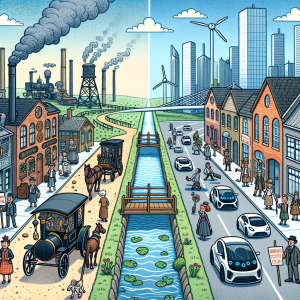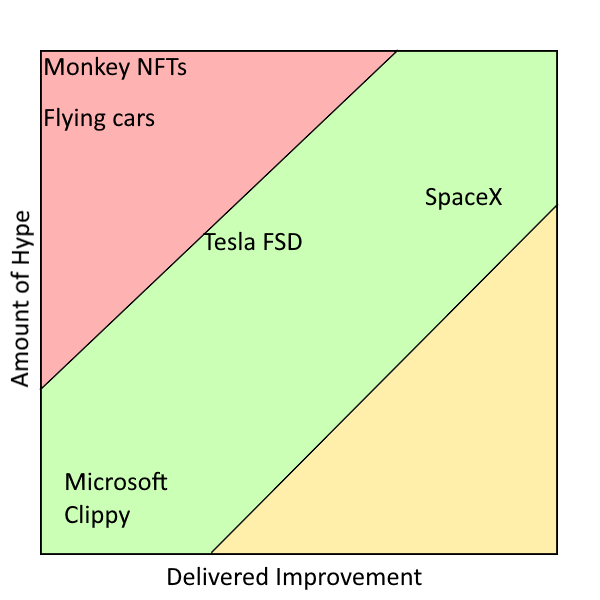
Currently, a battle is going on between people who want to accelerate technological growth and people who want to slow it down, or even stop it.
The 1970s were marked by economic instability, political unrest, and societal concern about rapid changes, all of which contributed to a deceleration in technological advancement – much like today. To prevent deceleration from happening again, we need to find a way for the public to embrace innovation.
It’s tempting to write off decelerators as ignorant Luddites – it always satisfies the ego to feel smarter than others.
But I don’t feel that’s an effective strategy. This seems like a way to start never-ending identity-driven arguments that keep getting worse over time.
What if, like in a game of Civilization, we techno-optimists aim for a cultural victory instead of a science victory?
Where does techno-pessimism start?
Emotions are more powerful than logic, and they can’t be countered with logic.
I believe our best strategy is to increase the net quantity and emotional intensity of positive experiences with technology.
These experiences can be real or fictional. The brain doesn’t do a good job of distinguishing between those.
That may be why so many negative views of advanced technology are based on science fiction movies. To the brain, AI will clearly create Terminator robots that will wipe out humanity. We’ve all seen it in those documentaries science fiction movies with Arnold Schwarzenegger.
Stop over-hyping and under-delivering
Inspired by Mihaly Csikszentmihalyi’s Flow State, we can draw parallels with finding a balance between the ‘Amount of Hype’ and ‘Delivered Improvement’ in technological advancements.
With flow, work needs to fall inside an acceptable range on a chart with axes of “Skill/Ability” and “Difficulty”.
Below this range leads to boredom, and above it leads to anxiety.

In this version, “optimism” replaces “flow state”.
Below this section is “who cares?”, and above it is scams and broken promises – which leads to pessimism.
When we deliver tech with a good value to hype ratio (inside the green zone), we build credibility.
Repeatedly delivering on our promises leaves techno-pessimists with fewer inputs for their negative beliefs.
While moonshot projects can capture the public’s attention, they often take years (or decades) to complete – if ever.
But, delivering small projects frequently may help increase optimism, thanks to the recency bias we humans have.
If the average person’s life keeps getting better every month, thanks to some new technological breakthrough or tool, it may start to drown out their negative beliefs.
I don’t suggest stopping work on big, bold ideas.
But, when looking for a new project to start, I personally look at smaller things – probably a good idea for other business-related reasons anyway.
Creating more optimistic stories

Stories are a powerful tool for shaping public perception.
I believe that emotionally compelling techno-positive fiction has the potential to shift people’s views to optimism. We need to counter the many tales of doom.
To spread optimism, consider meeting the public where they are at; short-form content that can be consumed passively, like podcasts, YouTube, X/Twitter, etc.
O’Shaughnessy Ventures’ Infinite Films is working on uplifting films and stories through White Mirror, their counter to the dystopic Black Mirror series.
If you know of people doing something similar, please let me know. I’d like to share their content in future issues.
What to do for the future?

Much of what I see in the e/acc world is either motivational for its proponents, or critical of its opponents – which isn’t likely to win them over to our side.
There will certainly be people with such deeply ingrained beliefs they won’t ever change – like people in government who still believe in their ability to control.
But, as much as I’d like to believe we can just create amazing technological advances and society will appreciate it and accept it, we’ve seen that fail before.
Maybe it’s worth trying to help more people have an optimistic view of the future, instead of trying to fight them.
As with all articles here, please share your opinion if you have a different view.